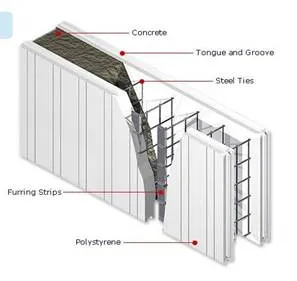Basics of Construction Engineering
Construction engineering is an important sub-discipline of civil engineering that has several applications in the modern world including the residential areas and industry. The construction activity being carried out is one of the indicators that reflect the economy of a nation.
What Is Construction Engineering
Civil engineering is a wide profession that comprises of several specializations including construction, structural, transportation, and environmental engineering. Expertise of each discipline is usually utilized in the accomplishment of projects related to the other disciplines of civil engineering. For example, construction engineers would be intimately involved with transport engineers while an airport is being constructed. Construction engineering involves the planning, execution and management of the construction works such as buildings, airports, highways, dams and bridges.


The civil engineering techniques involved in the construction engineering include survey, design, cost estimation, scheduling, procurement, material testing, and quality assurance. Numerous other fields of science, management, business and other disciplines of civil engineering are also involved in the successful accomplishment of construction works. Since construction engineering is a profession that involves the contribution of a large number of human beings, skills to handle human behavior is also extremely important.
Modern Methods of Construction
Due to rapid advancement in science and technology in all fields, construction engineering has also made significant improvement in numerous processes, some of which are as follows:
○ Brickwork is being gradually replaced by concrete blocks, due to which the construction period has been reduced, increased strength, and advantage of increased durability and fire resistance is being achieved. Acoustic performance has also improved considerably.

○ Permeable concrete blocks are being used for pavements and landscaping around housing areas. These blocks are not only robust, economical and durable, but also have provided a solution to the issue regarding the accumulation of rainwater. Since these blocks are permeable, rainwater is allowed to drain through in a controlled manner into the ground.

○ Ready mixed concrete is available that has been made under strict quality control measures, and with the advantage that the waste material has been minimized.

○ Insulating Concrete Formwork is a modern system in building design that offers an everlasting insulated formwork. It consists of twin walled polystyrene panels that are packed with ready mixed concrete. Such buildings resist dust, wind, fire damage, and are energy-efficient, quite and comfortable. Since the air and moisture are kept out, risks of allergies are minimized, making the life safe and healthy.

○ With the increasing cost of land, the requirement to construct buildings on maximum covered area on the same piece of land has become important. Thus, modern concrete basements have been introduced due to which the available land is being used more efficiently, without any change in the height of the building.
Role Of Design In Construction Engineering
Design is of paramount importance in the construction engineering since the usefulness of the building, safety, cost, and environmental factors are all influenced by the design of the building. Therefore, the design aspects should be thoroughly considered before the construction starts since after the commencement of construction, any changes required in the building may either be extremely expensive, or even may not be possible. The design consists of drawings with specifications prepared by a team of designers, normally including the surveyor, architect, construction engineers and structural engineers. The team of designers may also include other specialists of the engineering profession depending upon the utility and size of the building.